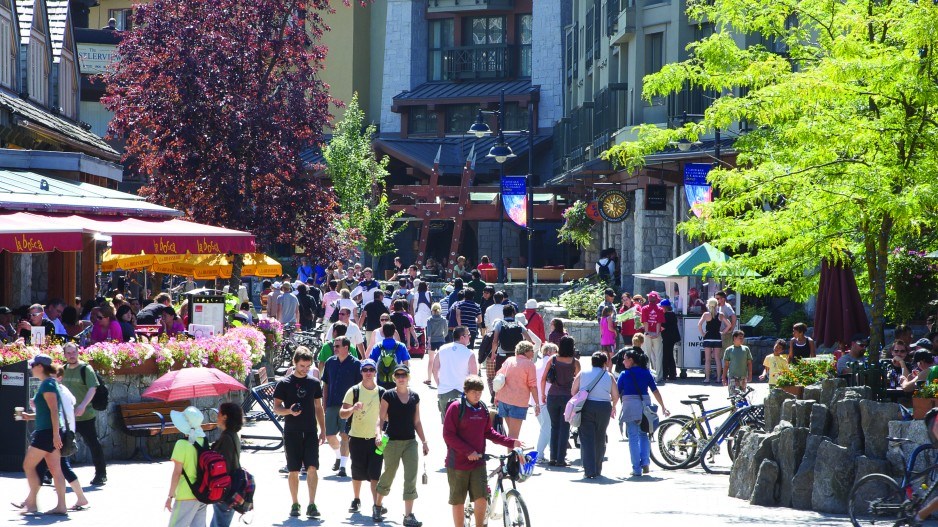The pandemic may effectively be in the rear-view mirror, but businesses in Whistler are still struggling with high costs, a slower summer season, and, unsurprisingly, finding enough workers.
Only about one in three Whistler businesses are currently fully staffed—"a small improvement from the winter season, but far from ideal,” said Whistler Chamber of Commerce executive director Louise Walker.
“Most commonly, businesses are down one to three members of staff, which can result in reduced operating hours and capacity,” she added.
“Kudos to all the workforce for remaining committed to delivering the excellent experience Whistler is known for.”
The positions that are hardest to fill this summer include culinary professionals (like chefs), retail workers and tradespeople, although the gaps aren’t limited to any one position.
A lack of affordable rent in the resort is “consistently and most significantly” given as the reason for labour challenges, Walker said.
“The other main challenge that businesses are facing is the cost of doing business,” she said. “We have seen multiple cost increases—[Employer Health Tax], wages, property tax, supply costs, etc.—and now many businesses are supplying housing options due to the lack of affordable options to rent. Small businesses often have small margins and so we are sharing these issues with our elected officials.”
The labour crunch has not let up for local restaurants, confirmed Restaurant Association of Whistler chair Eric Griffith, adding that the housing shortage poses the biggest challenge, prompting many local restaurateurs to take the matter into their own hands and secure housing for workers.
“While many are getting close to full staffing, it is a difficult balance, as increased costs of wages and costs of goods is happening so quickly that we are definitely leaving money on the table, or more correctly, our margins are being eroded quicker than expected,” Griffith said.
“Long-term sustainability of the Sea to Sky will be meaningful housing projects that allow people to affordably live.”
Whistler’s hotels, meanwhile, are “in a better overall position” for staffing heading into the busy summer months, said Hotel Association of Whistler chair Melanie Keam.
“The pool of local and international applicants has increased, however, the ability of employers to provide housing to new hires remains important in the hiring process. The opportunity for hotels to rent additional employee accommodation remains limited, and is a constraint in the hiring process,” Keam said, in an email.
“Many hotels began recruiting earlier this year, and participated in LMIA and working holiday programs to fill gaps left when local applicants could not be found.”
At Whistler Blackcomb, the resort’s single largest employer, staffing levels are “in good shape heading into Winter, with positions for the 23-24 season continuing to be posted to the careers website,” said senior communications manager DaneGergovich.
Further to the resort’s ongoing housing shortage, the Chamber recently finished Phase 1 of its housing and labour survey, receiving more than 200 responses, Walker said. The data will be used to inform the Chamber’s advocacy efforts moving forward.
It’s been a busy few months in terms of advocacy at the local business network, with the Chamber hosting events with MLA Jordan Sturdy and Commissioner of Employers Nancy Healey, as well as federal tourism minister Randy Boissonnault and MP Patrick Weiler.
“We are pleased to see a commitment to delivering a robust workforce, support for Indigenous tourism and investment in tourism infrastructure,” Walker said.
“Ideally, we would like to see infrastructure to support our businesses and residents in the form of affordable housing. When our survey analysis is complete, we will use the data to demonstrate the need for housing.”
Find more info at whistlerchamber.com.




